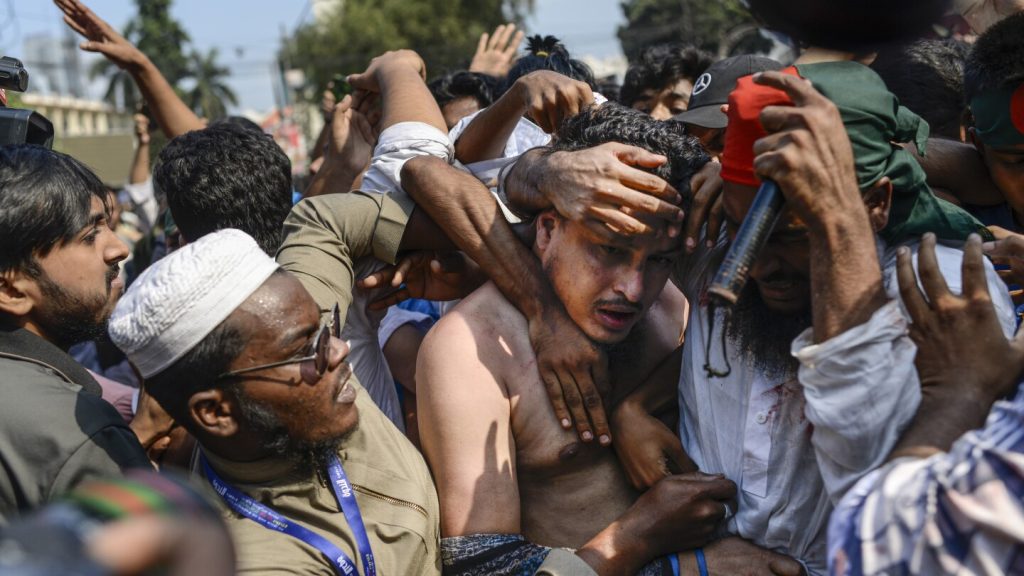The former Prime Minister Sheikh Hasina’s Awami League party faced opposition from rivals in Bangladesh’s capital, Dhaka, on Sunday as they attempted to hold a rally commemorating the death of a party activist in 1987. The rally was seen as a potential comeback for Hasina, who fled the country in August amid a mass uprising against former military dictator H.M. Ershad. The day of the rally is known as “democracy day” in Bangladesh, marking the transition to a parliamentary democracy in 1991. Hasina and her rival, former Prime Minister Khaleda Zia, have been the most powerful political figures in the country since then.
The rally was disrupted by activists from Zia’s party and the conservative Jamaat-e-Islami party, along with student protesters, who opposed Hasina’s supporters taking to the streets. The Anti-discrimination Student Movement, a key group in the mass uprising, aggressively targeted Hasina’s supporters, preventing them from gathering at the rally location near the Awami League party’s headquarters. Tensions ran high as the protesters chanted slogans in favor of their fallen leader and clashed with police officers.
The Awami League party reported that many of their activists were detained and attacked by anti-Hasina protesters, who vowed to prevent the party from holding any public rally. The party condemned the violent opposition, calling it undemocratic and a violation of their constitutional right to assembly. Meanwhile, the political chaos in Bangladesh continued as Zia’s party sought quick reforms and a new election under an interim government led by Nobel Peace laureate Muhammad Yunus. The absence of Hasina’s party in the government raised concerns over high commodity prices, law and order, mob justice, and the rise of Islamist forces previously suppressed by Hasina’s regime.
The interim government, under Yunus’ leadership, announced plans to seek extradition of Hasina and her associates to face charges of crimes against humanity related to the deaths of protesters during the uprising. Bangladesh’s Law Adviser Asif Nazrul stated that the government would enlist Interpol’s help to issue red notices for the arrest and repatriation of fugitives responsible for the deaths. The international community remained vigilant about alleged attacks on minority groups, particularly Hindus who make up 8% of the country’s population. The ongoing political turmoil and power struggles in Bangladesh raised concerns about democratic values and stability in the South Asian nation.


